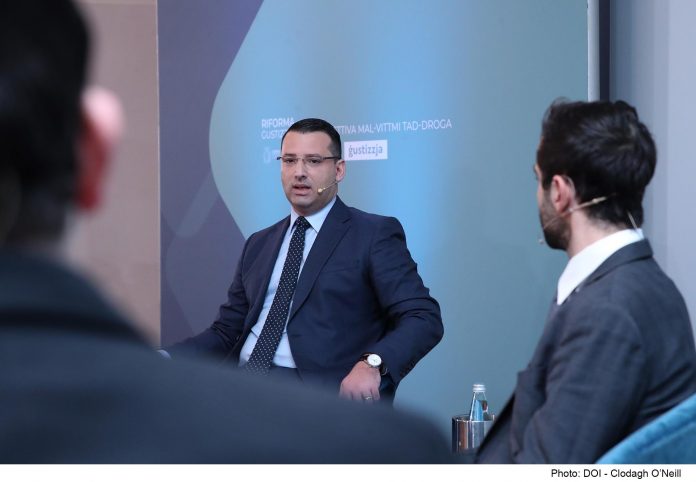The Ministry for Justice and Reform of the Construction Sector Jonathan Attard organized a meeting with the main stakeholders as part of the public consultation on the reform towards more effective justice for drug victims.
While thanking the respective entities that accepted the invitation to continue this consultation, Minister Attard began to clarify that at the center of this reform are those who are really victims of drugs and that the government will continue to work to fight drug trafficking.
“It is in the interest of every person in the society we live in that we do not slam the door in the face of those people who for one reason or another ended up being victims of drugs. But we believe that these victims should find a shoulder for a better life,” stressed Minister Attard.
The minister said that the meetings he had with the same parties concerned in the sector, not only served to continue to understand and appreciate their work, but also to discuss certain points and proposals that can continue to strengthen this equally important reform which can give an opportunity to those who really show that they want to change their lives for the better.
He noted that in general the proposals were well received, while there were aspects, such as the revision of the amounts in the indicative schedule of who qualifies for a Drug Court, which created an important discussion. The minister stressed that this is precisely the purpose of the public consultation, and ensured that all submissions are being noted and expressed optimism that this process will lead to a strengthening of this reform.
For his part, the Chairperson of the Advisory Board for Sentencing Policy Dr. Alex Scerri Herrera explained that it is a fundamental principle that the law should be reviewed and amended to always be in line with social morals and the -the pulse of the people. He added to elaborate that because the law is something active, precisely on the tenth anniversary of the public consultation that led to one of the biggest reforms in the field of drug laws, this same law is being revised so that the judicial system becomes more fair and efficient.
The law provides a number of criteria and conditions for the Court to evaluate whether it can and should convert itself into a Drug Court or not. The idea of this amendment is to analyze all the circumstances of the case and to have more of a human aspect in the applicability of this law.
The parties concerned from various entities shared their thoughts with interventions made by them during the meeting. Minister Attard and Dr. Scerri Herrera responded to these interventions with reference to what the reform says and continued to clarify its ultimate goal.
Regarding the consultation process, the parties concerned expressed satisfaction for the way the discussion developed, especially for the way they met and have invitations to continue consulting on such topics.
“Many interesting points have come out that confirm how good an opportunity this is to carry out a bold reform and that the contribution collected will certainly serve to achieve the ultimate purpose of this consultation – to offer a chance to those who have become victims due to d – their addiction to drugs,” concluded Minister Attard.
This meeting was attended by several representatives including from the national agency Sedqa, from Caritas and from the OASI Foundation.










